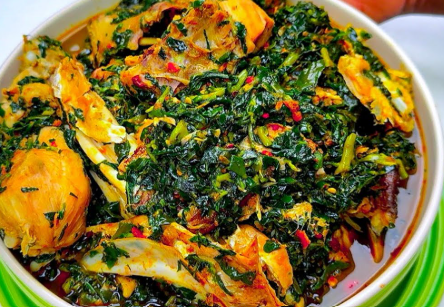Bulk Bitterleaf per pack (Subscriber price only)
Wholesale Organic Dried Bitter Leaves for Culinary and Herbal Use
Min Order : 1000kg
Uziza -per pack(Subscriber price only)
Description
Uziza (Piper guineense) is a fragrant, peppery leaf and seed plant native to West Africa. The leaves have a slightly bitter and spicy taste, while the seeds are pungent with a distinct aroma. In Nigerian cooking, the leaves are used fresh or dried to add depth and spice to soups and stews.
Sources
Primarily cultivated in Southeastern Nigeria, especially in states like Enugu, Abia, Imo, Anambra, and Ebonyi.
Health benefits
-
Aids digestion – helps relieve constipation and bloating.
-
Anti-inflammatory – soothes body pains and inflammation.
-
Boosts immunity – contains vitamins, minerals, and essential oils that fight infections.
-
Improves reproductive health – traditionally believed to boost fertility and sexual health.
-
Rich in dietary fiber – supports gut health.
Common soups you can use it for
-
Nsala Soup (White Soup)
-
Oha Soup
-
Pepper Soup
-
Egusi Soup (especially the Southeastern variation)
-
Okra Soup with mixed leaves
Shoko -per pack (Subscriber price only)
Description
Shoko, also called Lagos spinach or celosia leaves, is a traditional Nigerian leafy vegetable native to tropical Africa. It is widely grown in Nigeria, particularly in the Southwest, and is prized for its slightly bitter taste which mellows when cooked.
Sources
Lagos, Ogun, Oyo, Osun, and Ondo states.
Health benefits
-
Rich in antioxidants – helps fight free radicals and support cell health.
-
High in vitamin C – boosts immunity and promotes wound healing.
-
Good source of folate – important for red blood cell production and pregnancy health.
-
Contains iron – supports blood health and energy levels.
-
Aids digestion – thanks to its dietary fiber content.
Common soups you can use it for
-
Efo Riro (traditional Yoruba vegetable stew)
-
Efo Shoko (Shoko-based vegetable sauce)
-
Egusi Soup (melon seed soup with greens)
-
Ogbono Soup
-
Okra Soup
WaterLeaf- per pack (Subscriber price only)
Description
Waterleaf (Talinum triangulare) is a soft, juicy, and nutrient-rich leafy vegetable popular in Nigerian cuisine. It has small, smooth leaves and a slightly tangy flavor that blends well with other vegetables. Known as Gbure in Yoruba, Mgbolodi in Igbo, and Alenyru in Hausa, waterleaf is often used fresh in soups and stews. It is a key ingredient in many vegetable-based Nigerian dishes and is also valued for its numerous health benefits.
Sources
Commonly cultivated in home gardens and farmlands across Nigeria, especially in the southern and middle belt regions. It grows abundantly during the rainy season but can be cultivated year-round with adequate watering.
Health Benefits
-
Rich in vitamins A and C for improved vision and immune function.
-
High in dietary fiber, which supports digestion and bowel health.
-
Lowers cholesterol and promotes heart health.
-
Contains antioxidants that help fight free radicals in the body.
-
Aids weight management due to its low calorie and high water content.
Common soups or dishes you can use it for
-
Edikang Ikong soup
-
Afang soup
-
Vegetable yam porridge
-
Stir-fried vegetable sauce
-
Waterleaf and okra soup










